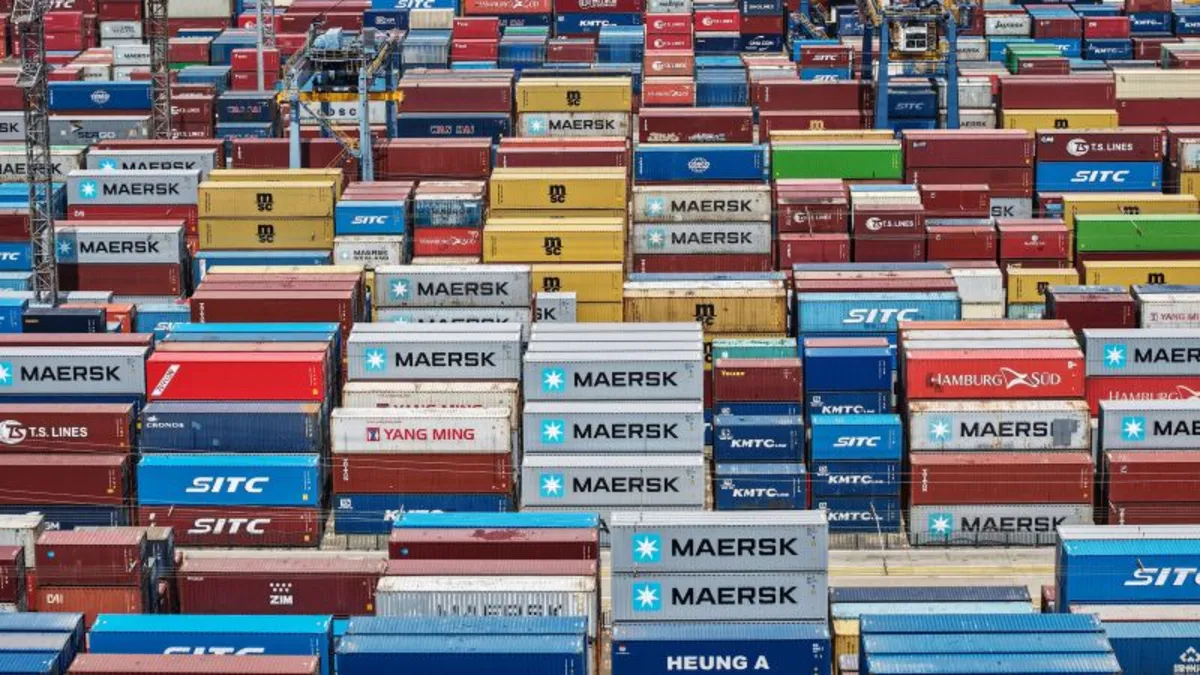
This week, US President Donald Trump’s top trade officials are set to meet their Chinese counterparts in a pivotal discussion aimed at de-escalating the increasingly intense and damaging trade war. The outcome of these talks is particularly significant, as the future of the global economy heavily depends on their success. This meeting marks the first in-person engagement between American and Chinese officials since the trade tensions escalated with a series of tariffs that began in March.
Despite the anticipation surrounding the talks, Treasury Secretary Scott Bessent indicated on Tuesday that a comprehensive trade deal is unlikely to materialize. The current tariff levels have surged to an alarming degree, leading to a considerable decline in trade between the two nations. The United States has imposed tariffs of at least 145% on most Chinese imports, while China has retaliated with tariffs of 125% on select US goods. The last batch of tariff-free shipments has almost arrived, with the initial waves of goods now facing these hefty tariffs.
As a result of these tariffs, businesses in both China and the United States are confronted with challenging decisions: either absorb the costs of the tariffs, which can more than double the prices of imported goods, or cease selling these items altogether. Consequently, consumers can expect to experience higher prices and potential shortages in the coming weeks.
The repercussions of the punishing tariffs have already begun to manifest, with the US economy contracting in the first quarter, marking its first decline in three years. This downturn was primarily due to businesses stockpiling goods in anticipation of Trump’s “Liberation Day” tariffs set to take effect in the second quarter. In China, factory activity has plummeted, contracting at its most rapid pace in 16 months, prompting the government to consider additional stimulus measures.
The China-US trade standoff is not only the most aggressive but also part of a broader pattern of tariffs imposed by Trump on various countries. The administration has enacted a universal 10% tariff on nearly all goods entering the United States, along with 25% tariffs on steel, aluminum, automobiles, and certain goods from Mexico and Canada. This situation has prompted global economists from institutions like the International Monetary Fund, OECD, and World Bank to predict severe repercussions for the global economy, including slowed growth and rising inflation.
Bessent and US Trade Representative Jamieson Greer will be traveling to Geneva, Switzerland for these crucial discussions. Bessent emphasized that while the talks are a significant first step, expectations for an immediate trade deal should be tempered. "My sense is that this will be about de-escalation, not about the big trade deal… but we’ve got to de-escalate before we can move forward,” he stated.
Both the US and China have acknowledged that the current standoff is unsustainable, with both Bessent and Trump admitting that the tariffs are excessively high. In a recent interview, Trump indicated that he would consider lowering tariffs on China “at some point.” However, despite ongoing tensions, China has maintained a firm stance, denying active negotiations until last week when it expressed openness to reviewing US proposals.
Amid the ongoing trade conflict, China's economy is beginning to feel the strain. The People’s Bank of China announced a reduction in the cash reserve requirements for banks, aiming to boost economic growth and liquidity. This move, along with a cut to an influential interest rate impacting mortgages, has been positively received by Wall Street, resulting in increases in stock market futures.
The harsh realities of the trade war are highlighted by the significant decline in trade volume. According to Flexport, the number of cargo ships traveling from China to the US dropped by 60% in April. Projections from JPMorgan suggest that Chinese imports to the US could plummet by as much as 80% in the latter half of the year. The Port of Los Angeles reported a substantial decrease in expected ship arrivals, with many sailings already canceled.
Despite the dire economic implications, both countries remain distant from reaching a trade agreement. Both sides have indicated that they require significant concessions to initiate negotiations, with Bessent predicting that it could take two to three years for trade relations to normalize with China. The stakes are high for the upcoming talks in Switzerland, as the need for de-escalation becomes increasingly urgent. Even without a formal trade deal, the face-to-face dialogue offers a glimmer of hope amidst the economic turmoil.